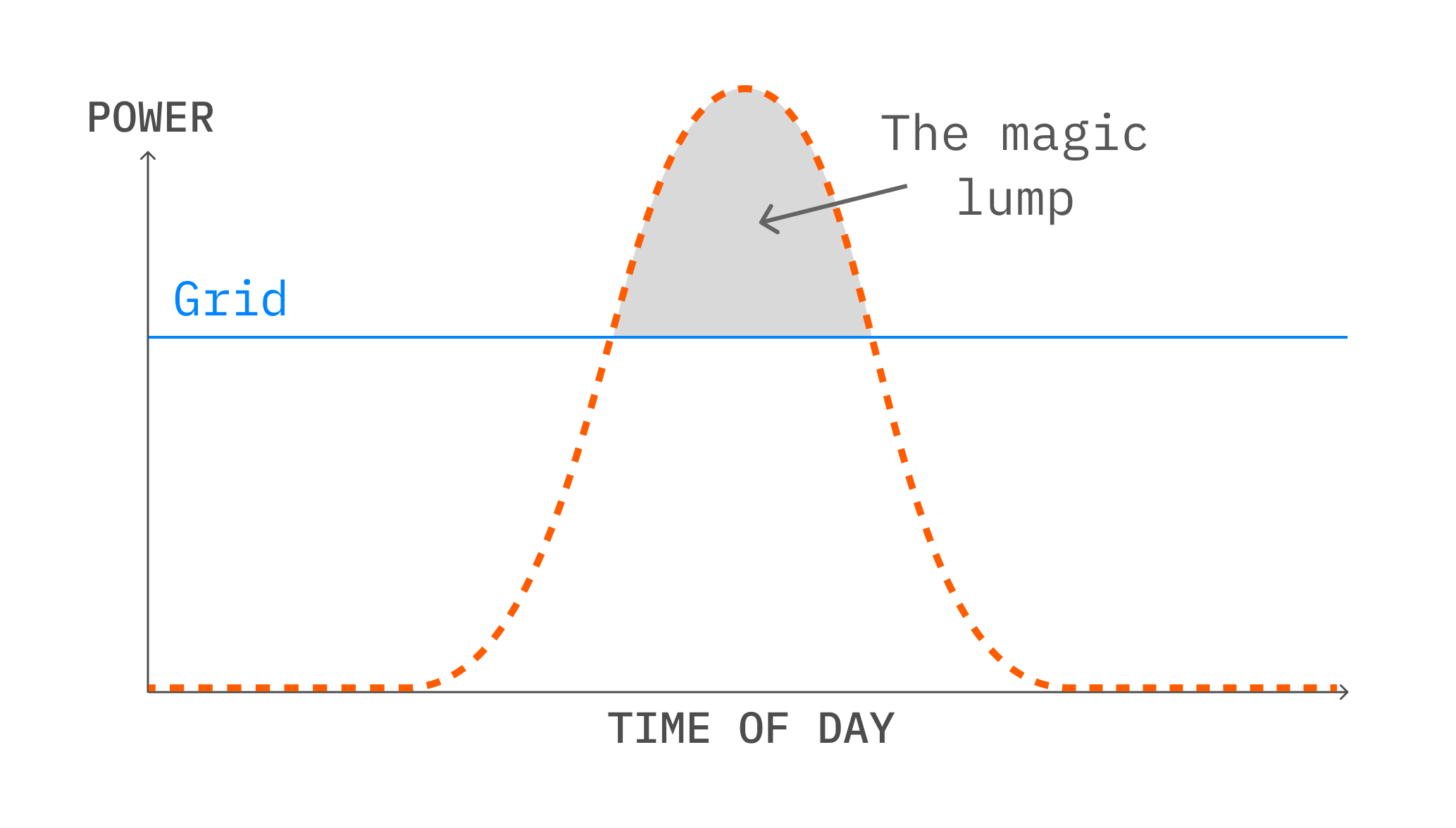All I’m hearing is excuses not to invest in battery storage at the grid level.
Grid scale storage will be built en masse the moment it becomes economical, or when governments decide to use tax payer money to do it or subsidize it.
That’s fair, but the reason it’s not economical right now is mostly poorly thought out contracts and subsidies. We are already paying for this mess.
From the calculations I’ve seen in recent scientific reports, that doesn’t seem to be the case, barring major economic changes on a global level.
Even the cheapest grid scale storage solutions are an order of magnitude more expensive than constructing more electrical generation capacity.
Particularly closed cycle fossil gas thermal plants have a massive advantage in markets where variable renewable electricity generation (wind, solar…) achieve high degrees of market penetration due to the volatility they cause in the grid.
Hydro, transmission and nuclear are currently the most accessible non-fossil options to counteract the disadvantages of solar & wind.
Is your area not undergoing a massive expansion? I’m in NW Florida, hardly a hotbed of environmentalism, and brother, business is booming.
I fully expect the 20-miles between the edge of town and my camp to be covered in the next decade. Any non-residential and non-commercial land is getting bought up and covered. I expect to see solar panels all they way in the space between the interstate and the state highway, already a few spots where you can see clear from one road to the other over the panels. Very exciting!
Where I live (Sweden) our grid has been essentially fossil-free since the early 90’s, thus we haven’t had the same need. Particularly since our electricity prices (excluding grid fees) already dip into the negatives in the summer, and solar is useless in the winter (<3hrs of light and snow cover).
Unfortunately though, recent politically motivated shutterings of nuclear plants during the 2010s combined with higher volatility in continental Europe has led to the volatility of our own electricity market skyrocketing, and more decentralized electricity production has led to huge increases in grid fees (state monopoly).
During a recent winter we had prices (when accounting for taxes and fees) in excess of 1$/kWh. This, in a country where almost all heating is electric, is disastrous. For context, we live in a small villa with a geothermal pump, and despite keeping indoor temps as low as 12°C at times we ended up with 1000s of USD equivalent in power bills for the winters 22/23 and 23/24.
Quite sad really.
I wish we could. That capacity is already booked. The batteries we are deploying needs to be used as local storage. And this is before the EU mandate on solarpanels on all roof tops has taken effect. The grid can’t expand at that rate, unfortunately.
What do you mean? Worst case put the batteries with the panel?
That’s what we are reduced to. That is what I mean. I also say that in the EU directive called EED, the union demands that, starting 2026, every public body needs to put PV-cells on the roofs of the buildings they use.
That will be noticeable.
And a good idea, right?
As long as we find a way to make use of the excess electricity produced, yes. Today we don’t have enough intermittent energy users. For storage, or otherwise.
There are initiatives calling for/demanding an expanded hydrogen infrastructure, for instance, so that could be one thing. I believe Germany is the leading country of such initiatives.
Yes, it’s a rocky road but it looks like it’s going forward IMO!
Plug in EVs are the most immediate solution to battery storage.
But they are not home at peak solar.
But generally they would be parked, right? At the office, or transport hubs? Maybe that’s where the batteries need to be installed. Take the responsibility off private citizens and install it where there’s going to be a mass of cars parked.
It’s almost as if a proper energy grid isn’t compatible with private equity.
We had a nice setup, quasi public/private power company. Prices were low and we voted on the governing board. Cool.
The the county sold us out to a strictly private firm and most people’s prices spiked 40%, literally overnight.
I’m not much of a socialist, government solutions carry their own issues and inefficiencies, but a service as vital as power (and water and sewage) should be public works.
You’ve got to at least have a seat at the table as a community, for it not to be an entirely predatory relationship.
There is a lot of operations that aren’t timing-critical (their work is cumulative) and can be made cheaper by only using excess energy in daytime.
- Pumped hydro
- Charging grid-tied batteries and EVs
- Air heating/conditioning (especially when used with physical heat storage)
- Water heating/cooling for residential use
- Water heating for pools
- Reverse osmosis
- Furnaces in glass/metal/aluminum factories, crematoriums etc.
- Computation-heavy tasks (AI training, simulations, rendering, crypto mining…)
Solar can be built wherever there’s demand for any of these, right? Also, more customers should adopt a real-time energy pricing model.
I will say, from my time being a process engineer in metals:
-Everything runs 24/7 cuz the equipment is so expensive and there’s always too much demand
-furnaces are gas, probably too hot to reach in a reasonable space with electricity
Totally agree with storing temperature/water locally as a battery, especially at home levels
I believe the electric funaces are called "Arc furnaces" and you heat by making electricy jump between conductors.
One of the advantages over blust furnaces is that production can be varied more easily as there isn’t a whole lot of ancillary parts of the furnance which all need to get up to temperature. So only running them on excess energy might be more practical.
Oh I wasn’t even thinking of it, but for secondary in iron that is probably perfect. Still not gonna be able to continuously anneal or anything due to the massive amount of thermal mass needed, but for the “spot” stuff that sounds perfect
I also have no idea about titanium production and it could easily be useful there
Yeah, this should really be the future. There’s a lot of unnecessary materials used/energy wasted to give us our current “all power costs the same all the time” system.
According to this, about 70% of US household energy use is heating/cooling the space, or water. Much of that can be time shifted. What can’t be time shifted can be stored in cheaper ways than battery storage.
1 tonne of rock heated (or cooled) 20° C above ambient is a store of about 4.7 kWh. According to that same site, the average yearly energy use in the US is 10500 kWh. If 70% is heating/cooling, that’s about 20 kWh per day, so you’d need about 5 tonnes of rock to hold that enough energy. That seems like a lot, but it’s just about 2 cubic meters of rock.
If you use water, it has 5 times the specific heat (but less density), so you only need 1 cubic meter. Probably easier to heat/cool/use, too. Water can also be heated more than 20 degrees above ambient, too.
Really, we should create incentives for homes to be built with high thermal mass. Even without any sort of fancy direct heating or cooling of a thermal mass, it will store significant heat.
Really, we should create incentives for homes to be built with high thermal mass. Even without any sort of fancy direct heating or cooling of a thermal mass, it will store significant heat.
Welcome to traditional housing in Italy and probably elsewhere in the Mediterranean region. Thick stone walls even out the temperature swings through the day. Throw open the windows when the temperature is comfortable and close up when it gets too hot or cold depending on the season. This gets you quite far without any air-conditioning or heating.
If you use water, it has 5 times the specific heat (but less density), so you only need 1 cubic meter. Probably easier to heat/cool/use, too. Water can also be heated more than 20 degrees above ambient, too.
My old house had an electric boiler that would automatically heat up at night when electricity was cheap. They have fallen out of fashion in the past two decades or so around here, but I can see them making a come back.
Of course that was direct resistive heating. Stick a heat pump in there and you got something.
Wait until you calculate how much energy you need to tip over to the freezing point for water!
Yeah, freezing water is definitely great. It’s just a little trickier to deal with since you need to account for the expansion, and the fact that you can’t pump it around anymore.
Ha ha true, I was mostly jesting but also because I was blown away when I found out.
That’s true. If there’s lots of flexibility in the energy consumption, then it would be easy to keep adding lots of renewable. And there’s lot of potential for demand flexibility.
In reality there’s limited flexibility, in part due to laziness and inertia. So adding more solar is giving diminishing returns. Which means adding solar gets harder to do economically as the share of renewable increase.
There need to be better incentives for flexibility in demand (ie push consumer to shift energy usage) and for storage (ie give energy producers bonuses depending on the amount of energy storage they have available).
Factories often kinda have to run 24/7 so only firing up the furnaces/other electricity intensive machines when electricity is cheap isn’t feasible in most cases
I’m not saying factories should be forced to switch machinery like with ripple control systems in Soviet countries (contactors in households and industry switching based on signals superimposed on the 50Hz grid), there should just be an appropriate economic incentive in doing so. If it’s not enough to offset equipment cost, the factories can ignore it.
Just export the power to the next timezone over.
In the UK, the average wait for a grid connection is more than 5 years, and over 40% of queuing projects have a connection date beyond 2030.
That’s a grid connection to allow residential solar to feed back? (I thought it “just worked”)
Or any grid connection, like for a new building?
I’m assuming for large scale commercial solar
Ahh, I’ve got wrong end of the stick. TY!
Fpl artificially stifles solar panels on private homes by demanding a 1 million dollar policy be taken out payed by the homeowner in case solar damages something.
They also lobbied to get a law approved that says Insurance companies can refuse to insure houses with panels. Mine dropped me for my solar
What’s FPL?
Florida Power & Light
Duke energy in NC has basically already made it to expensive or at least not worth it to install solar. They reset the power credits to generate and you basically still are stuck paying a power bill regardless of what you generate.
Get batteries; fuck em.
I fear for induced demand. If electricity is cheap, why build more efficiently? Why not do bitcoin mining or AI training?
It wouldn’t be so bad if there weren’t plenty of places around the world that could desperately use solar panels, that are building fossil fuel infrastructure instead. Climate change is a global problem, so the obsession with getting your individual emissions down to zero is selfish and sometimes even detrimental to the climate if “your emissions” don’t include the cost of manufacturing and limited availability.
We should be sending solar panels to the developing world as fast as humanly possible, not making electricity so cheap in California that multinationals can open up a couple more data centers.
We should be sending solar panels to the developing world as fast as humanly possible
More of addendum than criticism - sending random stuff to developing countries is one of the problems. Solar panels need proper infrastructure and maintenance. Instead of sending them for the west to feel good, we should rather empower governments of those countries to take their own initiative, build infrastructure, train people and make the panels very affordable for them.
sending random stuff to developing countries is one of the problems.
Relevant Video.
Already happening in Northern California. PG&E (Pacific Gas & Electric), which is a FOR-PROFIT utility, reduced the price it pays individuals for selling extra power to the grid. The reason cited was there is too much power being sold at the wrong time of day.
Take a look at California ISO to see real-time graphs of electricity generation and usage.
Solar is currently generating about 50% of total electricity. A percentage of that is going to batteries.
Pretty exciting!






